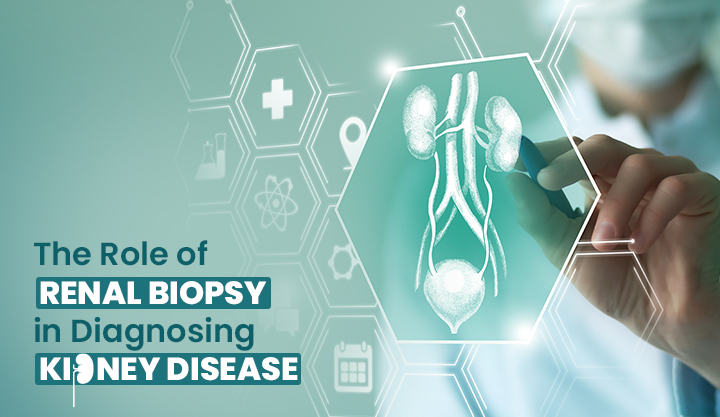
The Role of Renal Biopsy in Diagnosing Kidney Disease
As one of the most vital organs in our body, the kidneys play a crucial role in maintaining our overall health. However, kidney disease can occur due to a variety of reasons. If left undiagnosed and untreated, it can lead to kidney failure. One of the most effective ways to diagnose kidney disease is through renal biopsy. In this blog, we will explore the role of renal biopsy in diagnosing kidney disease, including the biopsy procedure, sample analysis, interpretation of results, treatment planning, and follow-up care.
What is Renal Biopsy, and How Does It Help To Diagnose Kidney Disease?
Renal biopsy is a medical procedure involving removing a small sample of kidney tissue for microscopic examination. It is a valuable tool in diagnosing kidney disease, as it provides a direct view of the kidney tissue and can help identify the cause of the disease. During the biopsy, a small needle is inserted into the kidney through the skin, and a small piece of tissue is removed. The tissue sample is then sent to a laboratory for analysis.
The sample analysis is a critical step in the diagnosis of kidney disease. In the lab, a pathologist carefully examines the tissue sample under a microscope to identify any abnormalities, such as inflammation, scarring, or tumors. The interpretation of the results is crucial in determining the underlying cause of kidney disease, which can inform the treatment plan.
The Importance of Treatment Planning Based on Renal Biopsy Results
The diagnosis of kidney disease through renal biopsy can lead to a more accurate treatment plan. Depending on the biopsy results, the healthcare provider can develop an individualized treatment plan that targets the specific cause of kidney disease. For example, suppose the biopsy reveals that the patient has glomerulonephritis, an autoimmune disease that affects the kidneys’ filtering system. In that case, the healthcare provider may prescribe immunosuppressive drugs to treat the underlying condition.
Follow-Up Care After Renal Biopsy and Diagnosis
Follow-up care is an essential aspect of the diagnosis and treatment of kidney disease. Patients who have undergone renal biopsy will require regular follow-up visits to monitor their condition and assess the effectiveness of the treatment plan. Depending on the patient’s condition, follow-up care may include blood and urine tests, imaging studies, and additional renal biopsies.
When Is Renal Biopsy Required?
A renal biopsy is a valuable tool in diagnosing kidney disease, but it is not always necessary. Generally, a healthcare provider may recommend a renal biopsy if there are signs or symptoms of kidney disease or if other tests have been inconclusive. Here are some scenarios in which renal biopsy may be required:
- Unexplained changes in kidney function: If there are unexplained changes in a patient’s kidney function, such as high levels of protein in the urine or a decrease in glomerular filtration rate (GFR), a renal biopsy may be recommended to help identify the cause.
- Suspected kidney disease: If a patient has signs and symptoms of kidney disease, such as blood in the urine, swelling in the legs or feet, or fatigue, a renal biopsy may be recommended to help diagnose the condition.
- Monitoring of kidney disease progression: In some cases, a patient may have known kidney disease, and a renal biopsy may be recommended to monitor the progression of the disease and assess the effectiveness of treatment.
- Transplant rejection: For patients who have undergone a kidney transplant, a renal biopsy may be required if there is a suspected rejection of the transplanted kidney.
It’s important to note that renal biopsy is not always required to diagnose kidney disease. Instead, a healthcare provider may use other diagnostic tests, such as blood and urine tests, imaging studies, or a physical examination, to determine the underlying cause of kidney disease. If you have symptoms of kidney disease, speak to your healthcare provider about whether a renal biopsy may be right for you.
For appointment with our nephrologist, visit https://pp.yashodahospital.org/
